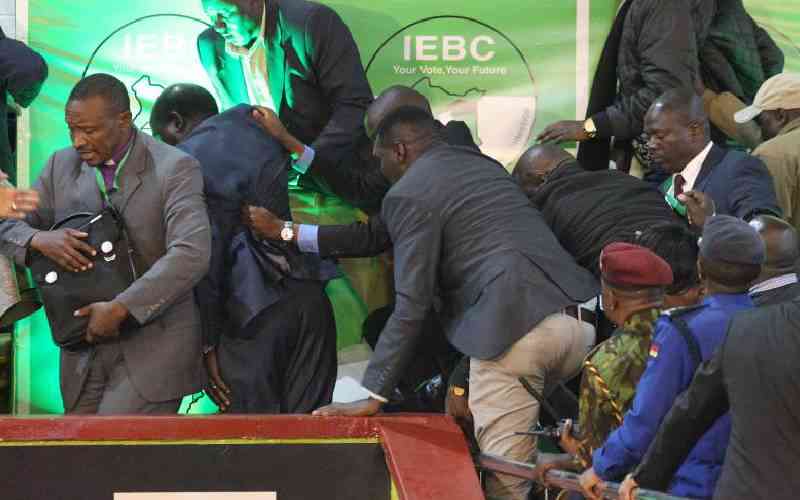×
The Standard e-Paper
Kenya’s Boldest Voice

A desperate call from close kin of electoral commission chair, a troop of clergymen sent to his rescue, a planned hit on the chair at Bomas of Kenya and botched plan to flood the auditorium with confusion before a winner is announced.
This is the summary of the inside story on the events of August 15 at Bomas National Tallying centre which President William Ruto alluded to in a television interview earlier this week.